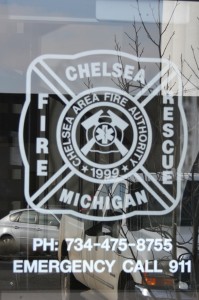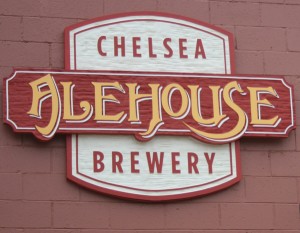 Earlier this week, the Chelsea Area Fire Authority (CAFA) Board approved a new 911 emergency dispatch contract with Huron Valley Ambulance/Emergent Health Partners.
Earlier this week, the Chelsea Area Fire Authority (CAFA) Board approved a new 911 emergency dispatch contract with Huron Valley Ambulance/Emergent Health Partners.
Previously, CAFA was dispatched through the Chelsea Police Department and the change means a $22,000 loss of yearly income to the city once the switch is made.
In addition, CAFA Board Chairman Rod Anderson said he believes that the switch will mean a delay in emergency medical services to city residents.
“We are not talking negatively or carry any animosity with Chelsea,” Fire Chief Jim Payeur said previously.
He said, “We are happy with what they’ve done. Unfortunately, Chelsea doesn’t have the technology capability that HVA has. HVA has the ability to send all information to a laptop in the trucks thru the computers and we can employ a rip and run system where the information is transmitted into the house, the guys can grab it and take it with them. And you can see the active incident and provide completed radio transmissions, which will help with training.”
Chelsea Police Chief Ed Toth said that he ran the county 911 center in the 90’s and told the City Council last month, “There’s gonna be a delay on medical calls. I can’t say how long but … there will be a delay on medical emergencies.”
Anderson said, “We have dedicated dispatchers here who know the history of callers and that’s not the case with Metro Dispatch.”
He said that Chelsea dispatch is familiar with repeat situations and knows how to handle them, and he’s convinced that the new system will mean an extra step and precious added time to the process of sending emergency personnel to 911 calls in the city.
Payeur disagrees, saying that with the exception of Pittsfield, all the other fire departments in the county have switched to HVA for a number of reasons.
With a second station going into the system in the near future, CAFA is working with Dexter and Scio Fire departments for a more regional cooperation with a “closest fire station concept,” Payeur said.
What that means is even if there’s a fire in Chelsea if Dexter can get there quicker, they will respond.
“We are trying to coordinate our resources and get the most bang for our buck with the closest responder, whether it’s our area or the Dexter area,” he said.
Here’s how the dispatch system works. A 911 emergency call comes in from a landline from within the city limits and it goes directly to Chelsea dispatch, which classifies the event and either assigns it to the Chelsea police as in the case of a burglary in progress, or if it’s a medical emergency or a fire, it’s transferred to HVA and CAFA.
If the call comes from a cell phone, it goes to Metro Dispatch and if it’s from the City of Chelsea, it goes to Chelsea Dispatch and follows the sequence above.
Under the new system, when a call comes in from a Chelsea landline, it will go to Chelsea Dispatch, which will classify the event and if it’s a police situation, Chelsea police will handle the call. If it’s not, Chelsea Dispatch will send the call to HVA Dispatch, which will then contact CAFA.
In the case of a cell call, it will go directly to Metro Dispatch, which will send it to Chelsea Dispatch if it’s a police call or HVA if it’s a medical or fire call.
Anderson said he was disappointed that the CAFA board didn’t go to see both the city and HVA dispatch operations in action before taking the vote, and that the contract that was approved on Tuesday “lacked the specificity in the contract that Chief Payeur used to disqualify Chelsea.”
In addition, the CAFA board made several changes and approved a draft contract with the Chelsea firefighters, which will be sent back to the membership for approval. The original contract was approved by the firefighters about a month ago.













